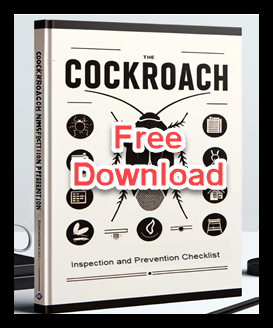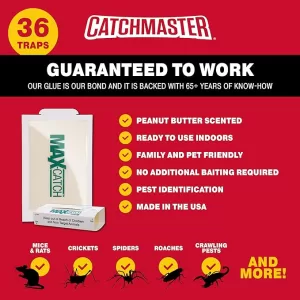Do Mice Eat Roaches
 Do Mice Eat Roaches? Exploring the Dynamics Between Mice and Cockroaches
Do Mice Eat Roaches? Exploring the Dynamics Between Mice and Cockroaches
In the world of pests, the interactions between different species can be both fascinating and complex. A common question that arises is whether mice, known for their versatile diet, consume cockroaches. This blog post delves into the dynamics between mice and cockroaches, shedding light on their occasional encounters and what this means for pest control in your home.
The Opportunistic Diet of Mice
Mice are opportunistic feeders that adapt their diet based on the availability of food sources. Their diet typically includes seeds, grains, fruits, and even insects. In environments where these resources are scarce, mice may turn to alternative food sources, including cockroaches.
Interaction Between Mice and Cockroaches
When mice and cockroaches share the same habitat, especially in dark, cluttered, and unsanitary environments, there’s a higher chance of occasional interactions. These conditions provide ideal hiding spots and breeding grounds for both pests, increasing the likelihood of mice preying on cockroaches.
Factors Influencing Predatory Behavior
- Food Scarcity: In situations where traditional food sources are limited, mice are more likely to consume cockroaches.
- Environmental Conditions: Cluttered and unsanitary conditions can foster closer encounters between mice and cockroaches, leading to predatory behavior.
Implications for Pest Control
Understanding the relationship between mice and cockroaches can offer insights into integrated pest management strategies:
- Sanitation: Maintaining a clean and clutter-free environment reduces the appeal of your home to both mice and cockroaches.
- Exclusion: Sealing entry points and eliminating hiding spots can help prevent both pests from establishing a presence in your home.
- Monitoring: Regular inspections can help identify signs of infestation early, allowing for timely intervention.
Conclusion
While mice may occasionally eat cockroaches, relying on this natural interaction for pest control is not advisable due to the health risks and damage associated with both pests. Effective pest management involves a combination of sanitation, exclusion, and professional intervention when necessary. By understanding the dynamics between these pests, homeowners can take proactive steps to maintain a pest-free environment.
- The Life Span of a Cockroach
- Do Cockroaches Eat Clothes?
- Do Cockroaches Have Teeth?
- Shrimps and Cockroaches
- Will Sleeping with the Light On Keep Cockroaches Away?
- How to get roaches out of your car overnight
- Do Cockroaches Feel Pain?
- How Many Legs Do Cockroaches Have?
- Comparing Cockroach Eggs Size for Different Types of Cockroaches
- Identifying a Cockroach Bite on the Lips or Face
- Black Water Bug Identification and Control
- Why Do Water Bugs Come Out At Night?
- What Does Roach Rash Look Like?
- Can Cockroaches Bite Your Eyelid?
- Can Cockroaches Live in Your Balls?
- How did cockroaches get their name?
- Why Do Cockroaches Shed Their Skin?
- What Smell do Palmetto Bugs Hate?
- Baby Palmetto Bug: Identification and Control
- Cockroach Eggs vs Poop: How to Tell the Difference
- How to Get Rid of Water Bugs
- How Long Can a Cockroach Live Without Air?
- The Lifecycle of the German Cockroach: From Egg to Adult
- Do Mice Eat Roaches
- Wood Roach vs. Cockroach

